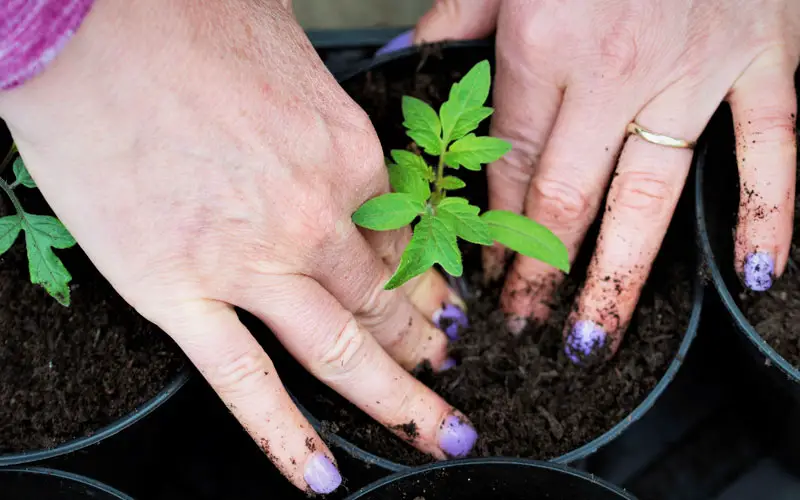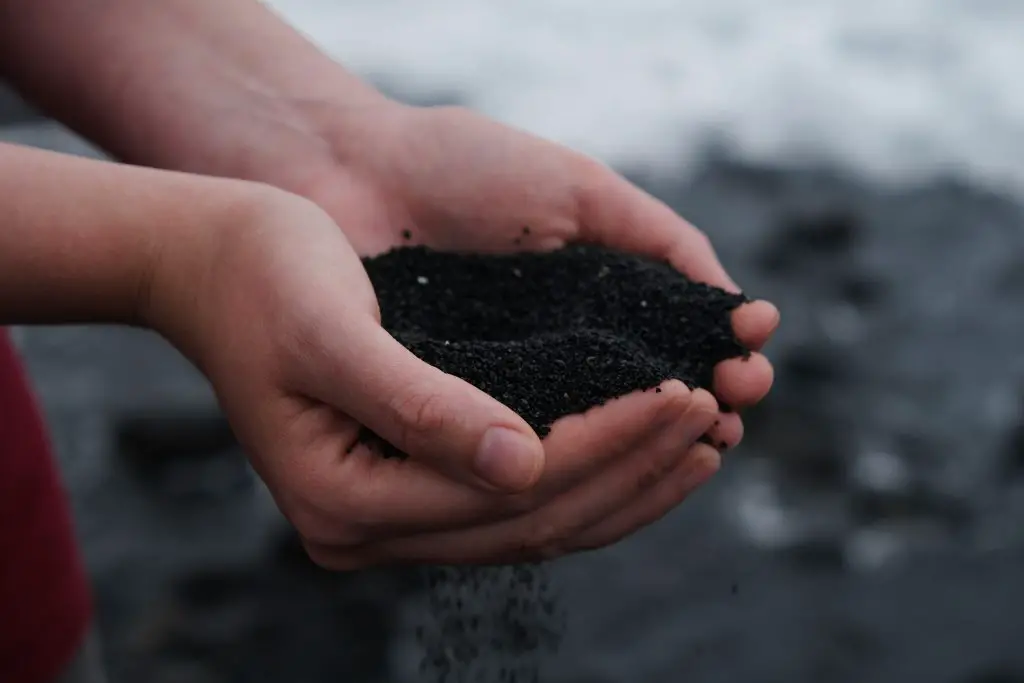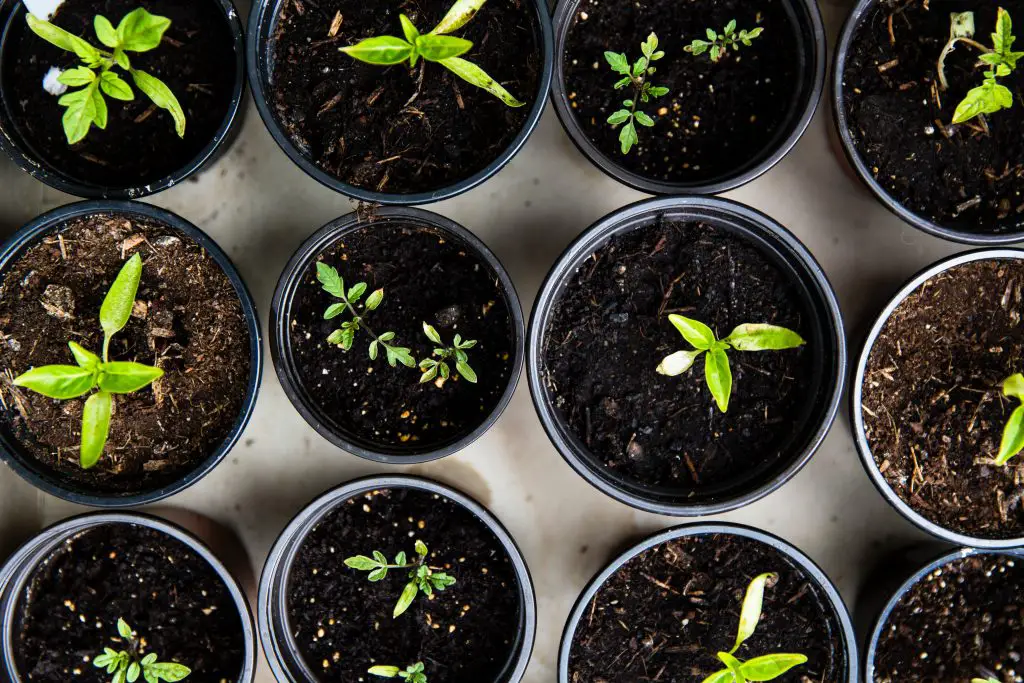When we want to grow tomato plants in containers, hanging baskets, growing bags, raised beds, or even borders, there is always the main question: what soil type should we use? In this article, the question is: can be used multi-purpose compost for tomato plants?

Tomatoes are not very fussy about what type of soil they are grown in. But you should bear in mind that the taste of tomato fruits depends on the quality of the soil. Flavorsome tomatoes need loamy soil that is rich in humus.
Tomatoes do best in well-drained, fertile loam with a pH of 5.5 to 7.0. Multi-purpose compost is the compost that can be used just like its name says as “multi-purpose”.
Multi-purpose compost can be used for both tomato seeds and tomato plants.
What is Multi-Purpose Compost?
Multi-purpose compost is usually a blend of peat and other materials, such as compost, bark, lime, and fertilizer.
The mixture of these ingredients is based on the idea to create a pH and nutrient level that is appropriate for a wide range of plants, including tomato plants.
Multi-purpose compost can be used for sowing seeds, repotting, and filling any container or raised bed.

Can You Use Multi-Purpose Compost for Tomato Plants?
A good quality multi-purpose compost can be easily used for tomato plants, as this contains all the needed nutrients when you are using it for seeds and the texture is suitable to use for seedlings and plants also.
Because the tomato seedlings do not need too many nutrients at the beginning, multi-purpose compost is perfect, so you don’t need to fertilize them.
Later, when you transplant the tomato seedlings, you should use tomato fertilizer to ensure optimal growth.
Multi-purpose compost comes in different blends of ingredients. Some of them contain varying nutrients that will feed your plants from 6 weeks to 6 months.
Others will absorb the water and will release it when the plant needs it, so you don’t have to water your plants as often.
Sometimes, cheaper multi-purpose composts use a lot of bark and peat, which can be a problem when you want to sow the seeds. If you prefer finer compost, you can sieve the compost to get a fairly fine texture.
To avoid sieving, you can opt for peat-free multi-purpose compost. Peat extraction can have a negative impact on habitat and the wider environment, also, it saves you from some work at home.
Why Use Muti-Purpose Compost for Tomato Plants?
Multi-purpose compost is best to use in containers, pots, or growing bags. It is not as good as specific purpose compost but can be still used for tomato plants.
Multi-purpose compost will feed your tomato plants only for a few weeks; therefore, you should use fertilizer after these few weeks, to ensure the right level of nutrients for your plants.
So, let’s see what are the benefits of multi-purpose compost.
1. Multi-Purpose Compost is Best for Seeds
Multi-purpose compost is best to use if you want to grow tomato plants from seeds. This type of compost has a light and fine texture, that makes it easy for seeds to germinate and for seedlings to grow.
Also, it doesn’t contain too many nutrients, so for the seedlings is more than perfect.
2. Water Holding Capacity
Multi-purpose compost can hold water for a longer period of time and does not dry out too quickly. This feature is helpful especially if you grow your tomato plants in pots, containers, or growing bags.
As the tomato plants like constantly moist soil, multi-purpose compost can be the best for them.
This compost will reduce the frequency of watering; however, you must keep the compost wet and not let it dry out completely. Once it dried out, it is hard to re-wet it.
3. Multi-Purpose Compost Good for A Wide Range of Plants
If you decide to plant some companion plants together with your tomato plants, multi-purpose will be the best choice.
Multi-purpose compost contains a blend of peat, bark, green compost, fertilizers, and lime, which makes it perfect for other plants as well, not only tomato plants.
4. Multi-Purpose Compost Is Organic
Most of the multi-purpose compost contains only organic matter and no chemicals at all.
5. Multi-Purpose Compost Weed-Free
Because of its ingredients, multi-purpose composts are weed-free.
How to Make Your Own Multi-Purpose Compost?
If you don’t want to spend money on pre-maid compost, then you can make your own. However, as the homemade multi-purpose compost is not treated, you will have to be aware of a few weeds.
For making your own multi-purpose compost you will need to have available the following: a garden sieve, equal parts of soil (for example molehill soil), leaf mulch, and kitchen compost.
Sieve and mix these ingredients, and you obtain your very own multi-purpose compost.
Wrap Up
Multi-purpose compost can be used for both tomato seeds and tomato plants.
However, this type of compost will only feed your plants properly for only a few weeks. So, you should fertilize your tomato plants regularly when they are big to keep them healthy.
Multi-purpose compost is best to use for seeds or when you grow your tomato plants in pots, containers, or growing bags. Its water retention feature helps in keeping your tomatoes well hydrated.
If you want to have tasty tomatoes, use good quality soil and fertilize the plants regularly. The taste and the flavor of our tomatoes depend on the quality and components of their soil.
To make sure you provide the best ingredient for your tomato plants, make your own multi-purpose compost at home. This way you cannot go wrong.
